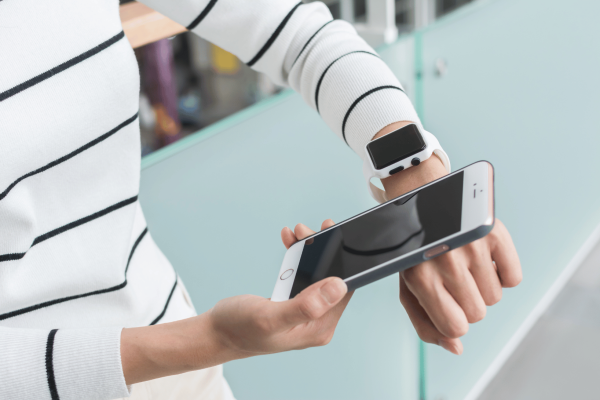In previous blogs, we’ve discussed the basics around low-code and no-code study design platforms and offered guidance on how best to get started. For those who still may need some convincing, we will use this blog to highlight the real and measurable benefits that some of our customers are enjoying by using our TrialKit platform.
Achieving Self-Sufficiency in Data Collection
Optinose, a specialty pharmaceutical company focused on the development and commercialization of products for treating ear, nose and throat (ENT) conditions, was looking for a flexible, user-friendly electronic data capture (EDC) system for an upcoming study. Optinose was interested in finding a low-code solution they could use and manage in-house to gain more control over their EDC environment. The team decided the optimal approach was to adopt an EDC system that would enable their data manager to directly set up and oversee the data collection process.
Working with Crucial Data Solutions (CDS), Optinose’s data manager used TrialKit’s low-code features to create a practice study based on the protocol for an upcoming trial. The data manager was able to perform multiple changes to the database throughout the course of both the practice and the live study with TrialKit. Optinose was easily able to make adjustments to the study database without having to rely on a third party to do it for them, whereas previous arrangements required change orders and lengthy wait times for support. Upon the successful practice run, Optinose was able to migrate the case report forms (CRFs), visit data, and configurations from the practice study over to the live trial, saving a great deal of time and cost.
Easy to Build and Manage Mobile Data Collection App
SISCAPA Assay Technologies was in the market for a smartphone-driven data collection solution that required minimal coding from its team as they sought to gather longitudinal health insights from participants via daily blood sampling. They wanted a solution that would enable them to pair their SampleDiary™ daily blood sampling kit with a mobile data collection app for supplementary electronic patient-reported outcomes (ePROs). Initially, SISCAPA engaged consultants to explore the ground-up development of their own mobile app. They quickly determined this would be too resource-intensive for the SISCAPA team to support over time.
SISCAPA connected with Crucial Data Solutions to discuss how TrialKit could help them collect patient data from anywhere via mobile app without requiring a lot of coding from their in-house team. In less than a week, the SISCAPA team was trained on how to design, configure and manage their study database in the TrialKi platform. And in just a few days, they created a prototype study – a process they expected to take at least six months to complete based on their conversations with other vendors. The platform’s rapid, low-code, user-friendly study configuration and forms design capabilities allowed SISCAPA to deploy their study in less than two weeks.
Additionally, SISCAPA discovered that TrialKit’s out-of-the-box integration capabilities with Apple Watch would allow them to collect a wider variety of endpoints than initially planned. This provided them with the opportunity to continuously collect data on a variety of health metrics they didn’t expect to be able to gather remotely, including key endpoints such as heart rate variability, resting heart rate, sleep patterns, ECG, daily activity rings, and blood oxygen (SpO2) levels.
The platform’s rapid, low-code, user-friendly study configuration and forms design capabilities allowed SISCAPA to deploy their study in less than two weeks.
Low-Code/No-Code Approach for Evolving Patient Registry Data from Paper to Digital
CDx Diagnostics, a leader in developing technologies to detect cancer quickly, was seeking to identify an electronic data capture (EDC) platform for its registry studies. Their previous registry had over 100,000 cases and 80,000 participants. It was conducted using labor intensive and time-consuming manual data collection and study management processes. CDx sought a more efficient solution and wished to begin collecting and managing registry data electronically.
CDx required a robust platform with several necessary features and functionality, along with some specific capabilities for payment tracking and reporting. They wanted a low-code system that could be managed by CDx’s own research coordinator and would allow them to build all their studies in-house. They also needed an intuitive user interface that would improve adoption, ease-of-use, and limit training time and work effort.
TrialKit’s drag-and-drop build features helped the research coordinator to create all of their own study forms. The platform’s ease of use made it possible for the CDx team to make necessary changes quickly and easily. With the study moving forward, CDx was able to produce consistent reporting, and data cleanliness was no longer an issue. Using TrialKit, CDx was able to effectively migrate all of their paper collection and management processes to a digital strategy that met their specific needs without requiring intensive, slow, and costly platform development work. As a result of this early success, CDx has replicated many of the processes enabled by TrialKit for other studies, reducing the study team’s workload and increasing the efficiency of all their clinical trials.
Designing your studies using low-code and no-code solutions such as TrialKit can help you enjoy better control over your studies, easily build out your studies with the features and functions you need, and make your studies more efficient, saving time and cost. If you would like more information and background on the low-code/no-code use cases shared in this blog, please check out these case studies for more details: Optinose/Self-Sufficiency, SISCAPA/Mobile, and CDx/Paper to Digital.
For more information on leveraging low-code/no-code development tools for your studies, or to arrange a demo of TrialKit, get in touch with us.




